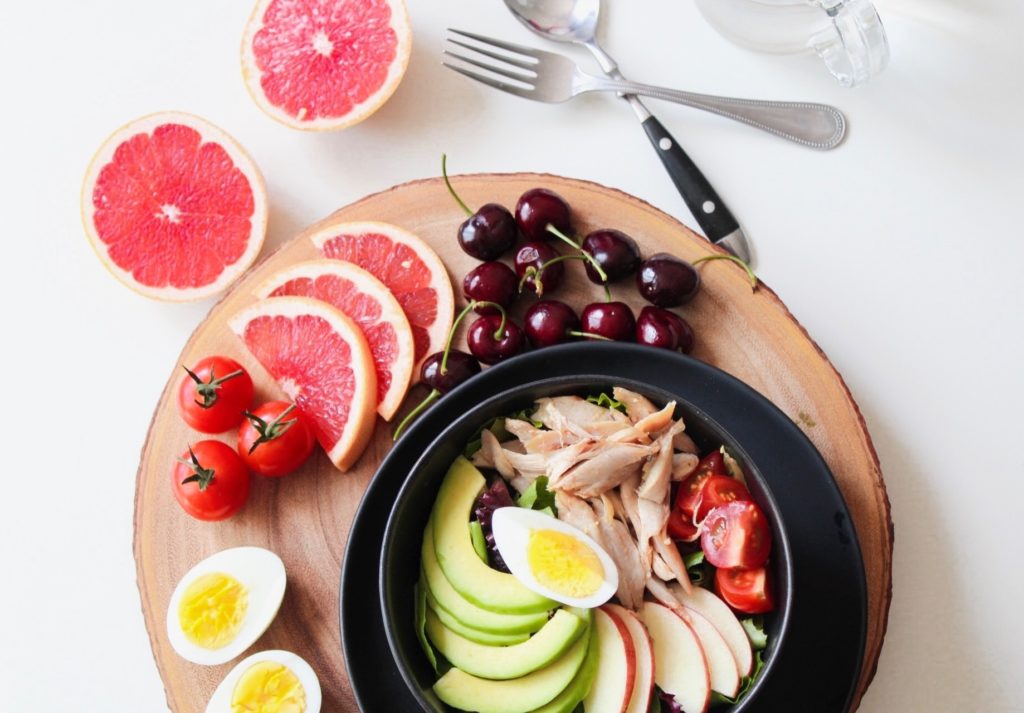
Pregnancy is one of the important phases of a woman’s life. Giving birth to another human being can be exhilarating, nervous, and challenging all at once. Women go through a lot of hormonal changes and physical transformations during pregnancy period.
No other time is more crucial in a woman’s life than before, during and after pregnancy period, when it comes to nutrition. You are feeding yourself and also another life that is in the “conception stage” if we can call it like that. Therefore, ensuring all the essential vitamins and minerals for two lives is important. So, it is evident that your routine diet will not work always.
Some women experience complications such as nausea, muscle cramp, and body swelling during the pregnancy period. Many women are suggested to include food that are the best anti-inflammatory foods such as ginger, turmeric, green tea in order to reduce these complications. Otherwise, since you are eating-for-two concept lets women indulge in anything they want.
Why should women maintain ideal weight during pregnancy?
Even though there are no rules on what to eat and not to eat other than the obvious, weight management is a crucial aspect of pregnancy. Contrary to general notion, weight management should begin even before conception. For instance, overweight or obesity can cause serious pregnancy complications; both for the mother and the child. According to studies, the percentage of stillbirths, cesarean sections, premature delivery, low birth weight for child and pre-eclampsia is higher in obese and overweight women than women of ideal weight.
At the same time, most women are recommended to increase their weight during pregnancy in order to support the weight of the developing fetus. If a woman falls below the ideal BMI for pregnancy, she may be advised to increase the weight in a healthy way. Overweight women would be recommended to gain less weight than the former group as they would still need nutrition for the baby.
What is the ideal weight for women during pregnancy?
According to the weighted index of pre-pregnancy weight test, women with BMI less than 18.5 are considered to be underweight and advised to gain anywhere between 28lb to 40lb (13kgs to 18 kgs) during the pregnancy period. Ideal BMI falls in between 18.5 to 24.9 and recommended a weight gain of 25lb to 35lb (11.5kg to 16kg). Anywhere in between 25 to 29.9 of BMI is considered overweight and being suggested a weight gain of 15lb to 25lb (7kg to 11.5kg). Obese women will have a BMI above 30 and are advised to put on weight between 11lb to 20lb (5kg to 9kg). However, quick weight loss or gain is also not recommended as it can cause shock to the body and result in other health issues
The best diet for pregnant women
1. Atkins Diet
Atkins diet is majorly focused on controlling the levels of insulin in the body. This is achieved by a low-carbohydrate diet. Consuming huge amount of simple carbohydrates can make your body to swing to the extremes in terms of the sugar level. Pregnant women who are at a risk of pregnancy diabetes are advised to be on Atkins diet to reduce carb intake and include protein and fiber.
2. Ketogenic diet
The ketogenic diet is an ancient diet used for the treatment of epilepsy. The diet includes consuming healthy fats instead of carbohydrates. Foods such as avocados, fish oils, olive oil, seeds, and nuts. The ketogenic diet will help the mother to resist insulin and effectively pushes the nutrients to the baby. It also helps to make the breast-milk healthy.
3. The Zone diet
The zone diet constitutes a perfect balance between carbohydrate, fat, and protein. It includes 40% carbs, 30% fat and 30% protein form the zone diet. The carbohydrate consumed is mostly complex carbohydrates such as whole grains and not unhealthy simple carbohydrates.
4. Vegan Diet

The vegan diet is not a diet that is usually suggested to pregnant women. It is more of a lifestyle that is based on certain philosophies than an actual diet. Women who follow the vegan lifestyle might need additional nutrients when trying to conceive. In this case, supplements are prescribed for
5. Vegetarian diet
Most vegetarians fall under the lacto-ovo vegetarian category. They consume vegetables and animal-based foods such as egg, dairy, and honey. This diet is loaded with nutrients and will provide many health benefits and also offer effective weight management for an overweight mother.
6. Mediterranean diet
This diet is highly suitable for women who are trying to get pregnant. It involves eating vegetables, vegetable oils, fish, and beans. The basic idea is to reduce the meat consumption.
7. Paleo diet

It is a concept of a diet consisting of meat, fish, vegetables, and fruit. It excludes any dairy or cereal products and processed food from the diet. Overweight pregnant women can take this diet for reducing weight in the pre-conception stage. However, avoiding dairy products completely is not recommended during pregnancy.
8. Brat Diet
Expert nutritionists often recommend BRAT diet to cure a stomach ache, diarrhea, vomiting and gastroenteritis in toddlers and adults. Read on this guide to know more about this bland food diet.
It consists of bland foods such as Bananas, Rice, Applesauce, and Toast. Bland foods are soft, low in insoluble fiber and easily digestible.
9. Raw food diet
It is consuming only foods in the raw form such as vegetables, fruits, and oddly even meats. Raw food diet can be useful for pregnant women as it will help to increase consumption of veggies and fruits. But prolonged raw food diet can result in protein deficiency or general weakness. It can be done periodically for best results.
10. Weight Watchers diet
It is a combination of diet, exercises and support system in moving towards a healthy weight goal. Women can take this diet during the pre-conception stage and post-delivery to increase or decrease the weight and network with similar people with similar goals.
Conclusion
All the above-mentioned diets vary depending on your weight, health conditions, specific medical conditions, and any kind of anticipated complications in pregnancy. A lot of the baby’s health depends on how healthy the mother is and how healthy is the food she eats. Moreover, mental stress can also adversely affect both the mother’s and baby’s health. Physical and mental balance and relaxation are important during pregnancy period.
References
https://www.ncbi.nlm.nih.gov/pmc/articles/PMC3640235/
https://www.ncbi.nlm.nih.gov/pmc/articles/PMC5637069/
https://www.babycentre.co.uk/a554810/weight-gain-in-pregnancy
https://www.thebump.com/a/eating-a-mediterranean-diet-could-help-you-get-pregnant
http://mariamindbodyhealth.com/keto-pregnancy/
https://www.ncbi.nlm.nih.gov/pmc/articles/PMC3710585/
